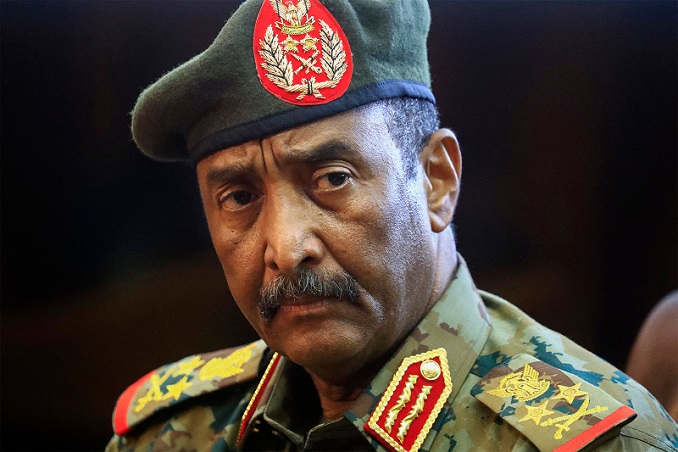![]() Sudan – General Abdel Fattah Burhan, the top Sudanese general has re-appointed himself as head of interim government in Sudan led by army. The move on Thursday establishes the leader with bolstered power two weeks after he led the coup against leaders and government that was elected through civil elections. The move of appointments for Sovereign Council is set to anger the pro-democracy movement in Sudan. The leaders of the movement have been sidelined since October 25 coup. They have demanded the military to surrender the power while refusing to be a part of government that has even a fragment of military influence or role in it.
Sudan – General Abdel Fattah Burhan, the top Sudanese general has re-appointed himself as head of interim government in Sudan led by army. The move on Thursday establishes the leader with bolstered power two weeks after he led the coup against leaders and government that was elected through civil elections. The move of appointments for Sovereign Council is set to anger the pro-democracy movement in Sudan. The leaders of the movement have been sidelined since October 25 coup. They have demanded the military to surrender the power while refusing to be a part of government that has even a fragment of military influence or role in it.
The reappointment of general as council leader was announced on Thursday in a bulletin on Sudan’s state television. This stood contrary to repeated assurances by the military of handing over power to civilian authorities. Since October coup, the military has detained more than 100 political leaders, government officials, activists and protesters. At least 14 protesters have been killed by the security forces in Sudan, claims United Nations.
As western powers and United Nations’ diplomats continue their efforts to resolve the crisis, removed Prime Minister Abdalla Hamdok continues to be under house arrets in Khartoum.
Related Posts
Hamza Baloul, the information minister of Sudan who was arrested in coup and released later, has condemned the announcement calling it “an extension of the coup”.
UN Spokesman Stephane Dujarric said, “We’re obviously taking a look at these developments. I would say they’re very concerning.” He added, “We want to see a return to the transition as quickly as possible. We want to see the release from house arrest of Prime Minister Hamdok as well as all other politicians and leaders that have been detained.”
Thursday’s announcement has also re-appointed powerful paramilitary leader Mohamed Hamdan Dagalo, as the vice-president. Burhan also reappointed three other generals who served on the previous council, and eight civilians, including one from the previous council. This is against the original agreement with pr-democracy leaders that established council should include five civilians chosen by activists, five military representatives, and one member chosen in agreement between civilians and the generals. This has irked the pr-democracy groups as they demand handing down of power from military.

